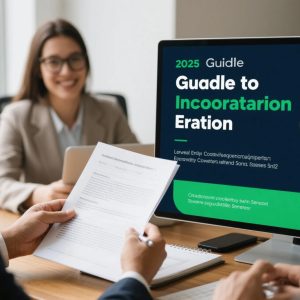Proactive Contract Design to Prevent Disputes
The foundation of effective contract dispute resolution begins long before any conflict arises—during the initial agreement drafting process. Well-structured contracts act as preventive medicine against costly legal battles by clearly defining expectations, responsibilities, and remedies. Many businesses make the critical mistake of viewing contracts as mere formalities rather than strategic tools for risk management. In reality, a carefully crafted agreement under business contract law principles can save thousands in potential legal fees and operational disruptions when disputes inevitably occur.
Modern contracts should incorporate built-in dispute resolution mechanisms that escalate conflicts through structured phases. These provisions typically begin with mandatory negotiation between specified executives, progress to mediation if unresolved, and only resort to litigation or arbitration as final options. This tiered approach, often developed through legal counsel for businesses, preserves business relationships while controlling costs. The most effective escalation clauses include specific timelines for each phase, preventing either party from dragging out the process unnecessarily.
Clear performance metrics and objective standards represent another key preventive measure. Vague terms like “best efforts” or “commercially reasonable” frequently fuel disputes when expectations diverge. Quantifiable benchmarks, testing protocols, and acceptance criteria transform subjective judgments into measurable compliance assessments. Incorporating these precise standards into your business contract law framework demonstrates operational sophistication that impresses both partners and potential litigators evaluating your dispute readiness.
Early Intervention Strategies When Disputes Emerge
Recognizing and addressing contract disputes at their earliest stages separates successful businesses from those bogged down in prolonged litigation. The first signs of disagreement—missed deadlines, quality complaints, or payment delays—should trigger immediate review of the contractual terms involved. This proactive approach, often guided by small business legal consulting professionals, allows for course correction before positions harden and relationships sour. Early intervention preserves more value for all parties while maintaining future business possibilities.
Documentation protocols form a critical component of effective early dispute management. Businesses should implement consistent practices for recording performance issues, communications about deficiencies, and remedial efforts. This contemporaneous evidence proves invaluable if the dispute escalates, while often motivating the other party to resolve matters cooperatively. Your contract dispute resolution playbook should include standardized templates for deficiency notices, cure period communications, and meeting minutes that maintain professionalism while protecting legal rights.
Preservation of relationships during disputes requires careful communication strategies. Even when contractual rights are clear, maintaining a collaborative tone and focusing on mutual interests rather than legal positions can yield better outcomes. Many legal counsel for businesses now emphasize “legal diplomacy” techniques that combine firm protection of rights with pragmatic problem-solving. This balanced approach proves particularly valuable in industries where ongoing interactions are likely regardless of the current dispute’s outcome.
Effective Mediation Techniques for Business Disputes
Mediation has emerged as the gold standard for contract dispute resolution in most commercial contexts, offering confidentiality, cost control, and preservation of business relationships. Successful mediation requires careful preparation beyond simply showing up with a lawyer. Parties should develop clear settlement parameters, understand their best alternative to a negotiated agreement (BATNA), and identify creative solutions that might satisfy both sides’ core interests. This strategic preparation, often facilitated by legal mediation strategies experts, maximizes the likelihood of favorable outcomes.
The selection of an appropriate mediator significantly impacts process effectiveness. While many excellent general commercial mediators exist, complex disputes often benefit from specialists with industry-specific knowledge. A technology licensing dispute, for example, might resolve more efficiently with a mediator who understands royalty structures and IP valuation methods. Your legal counsel for businesses can help identify mediators whose expertise and style match your dispute’s particular characteristics and your company’s negotiation approach.
Pre-mediation exchanges of position statements and key documents can dramatically improve the efficiency and success rate of the process. These materials allow the mediator to quickly grasp the core issues and begin productive discussions immediately. The most effective position statements focus on interests rather than positions, acknowledging areas of potential agreement while clearly articulating must-have outcomes. This preparation reflects sophisticated legal mediation strategies that recognize mediation as a problem-solving rather than adversarial process.

Arbitration as a Strategic Alternative
When mediation fails or isn’t appropriate, arbitration offers a middle ground between negotiation and full-scale litigation. Modern business contract law increasingly favors arbitration provisions that specify rules, locale, and arbitrator qualifications in advance. These clauses should be carefully tailored to your industry and typical contract values—consumer arbitration rules rarely suit complex commercial disputes. Well-drafted arbitration provisions can streamline resolution while avoiding the unpredictability and publicity of court proceedings.
The selection of arbitrators requires strategic consideration beyond simple availability. For technical disputes, parties may benefit from arbitrators with subject matter expertise who can grasp complex issues without extensive tutoring. In cases involving ongoing relationships, arbitrators known for creative problem-solving may produce better outcomes than those with strictly legal backgrounds. Small business legal consulting firms often maintain networks of qualified arbitrators suitable for various dispute types and can provide valuable recommendations during clause drafting or when disputes arise.
Arbitration preparation differs significantly from trial preparation, emphasizing concise presentations and expert credibility over dramatic courtroom tactics. Effective contract dispute resolution through arbitration requires focused evidence presentation and clear linking of that evidence to contractual terms. Many businesses find that mock arbitration sessions with their legal team help refine arguments and identify weaknesses before the actual proceeding. This preparation proves particularly valuable when the arbitrator’s decision will be binding with limited appeal rights.
Litigation as a Last Resort
When alternative legal mediation strategies fail, litigation becomes necessary to protect vital business interests. Even when pursuing legal action, businesses should maintain strategic focus on their ultimate objectives rather than emotional satisfaction. Early case assessment conducted with legal counsel for businesses should evaluate not just legal merits but cost projections, business impact, and potential recovery amounts. This disciplined approach prevents costly legal victories that provide little actual business value.
Document and data preservation becomes critical when litigation appears likely. Businesses must implement legal holds on relevant communications, contracts, and performance records to prevent spoliation claims. Your contract dispute resolution protocols should include clear procedures for triggering these preservation measures across all relevant departments. Modern e-discovery requirements can make litigation prohibitively expensive for organizations with poor information governance, making proactive policies a financial necessity.
Strategic use of motions and settlement conferences can control litigation costs while testing case strengths. Summary judgment motions, when appropriate, can resolve key issues without full trials. Court-ordered mediation or settlement conferences often provide opportunities to resolve cases even after litigation commences. These tactical approaches, guided by experienced business contract law practitioners, help maintain focus on efficient resolution rather than protracted legal battles.
Industry-Specific Dispute Resolution Considerations
Construction and real estate disputes often benefit from specialized legal mediation strategies that account for project timelines and multiple stakeholder interests. These industries have developed unique processes like dispute resolution boards (DRBs) that provide ongoing oversight and early intervention. Contract provisions should specify whether decisions from these industry-specific mechanisms will be binding or advisory, balancing finality with flexibility.
Technology and intellectual property disputes require particular attention to preservation of trade secrets and confidential information during resolution processes. Standard contract dispute resolution clauses should be supplemented with additional confidentiality protections and, when appropriate, provisions for sealed proceedings or protective orders. These measures prevent resolution processes from becoming avenues for competitive intelligence gathering while still allowing fair adjudication of claims.
International contract disputes introduce additional complexity regarding jurisdiction, enforcement, and cultural considerations. Many legal counsel for businesses now recommend multi-tiered clauses that specify mediation under international rules before proceeding to arbitration in neutral venues. These provisions should account for differences in legal traditions and business practices that might impact dispute resolution effectiveness across borders.
Implementing Organizational Dispute Resolution Protocols
Developing standardized contract dispute resolution protocols ensures consistent, strategic responses across your organization. These playbooks should identify escalation paths, documentation requirements, and decision thresholds for involving legal counsel. By institutionalizing best practices, companies reduce ad-hoc reactions that often increase costs and risks. The protocols should be regularly updated based on lessons learned from actual disputes to create continuous improvement in conflict management.
Training programs for executives and operational staff transform dispute resolution from a legal afterthought to a core business competency. These initiatives, often developed with small business legal consulting input, help teams recognize early warning signs, implement documentation procedures, and engage appropriate resources promptly. Well-trained employees can often resolve issues at the operational level before they escalate into full-blown disputes requiring external intervention.
Technology solutions now play an increasing role in efficient dispute management. Contract lifecycle management systems with dispute tracking features, automated documentation preservation tools, and AI-assisted legal research platforms all contribute to more effective business contract law compliance and dispute resolution. These investments yield returns not just in individual case outcomes but in overall organizational discipline and risk management.
Measuring and Improving Dispute Resolution Outcomes
Sophisticated businesses track key metrics around their contract dispute resolution processes to identify improvement opportunities. Measurements might include average time to resolution, cost per dispute, success rates of various strategies, and business relationship preservation rates. This data-driven approach, often implemented with legal counsel for businesses support, transforms dispute management from reactive to strategic.
Post-resolution analysis provides valuable insights regardless of outcome. Successful resolutions should be examined for replicable strategies, while unfavorable outcomes deserve constructive review of what could have been done differently. These retrospectives, when conducted without blame but with focus on organizational learning, continuously enhance your dispute resolution capabilities. The lessons should inform both future contract drafting and operational practices to prevent recurrence of similar issues.
Benchmarking against industry standards helps contextualize your dispute resolution performance. Many small business legal consulting firms maintain anonymized data about typical resolution timelines, costs, and outcomes across various industries. Comparing your metrics to these benchmarks identifies whether your processes are industry-competitive or require substantial improvement to maintain cost-effective operations.





